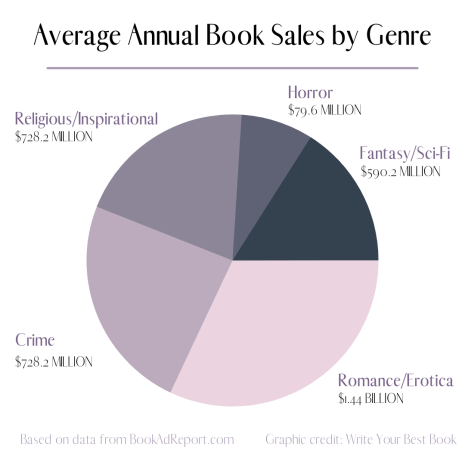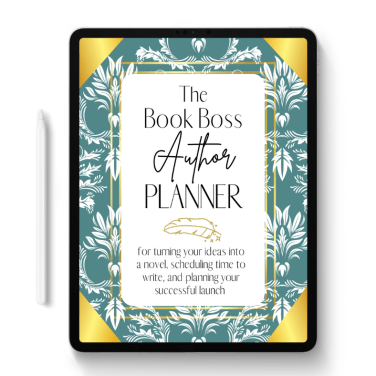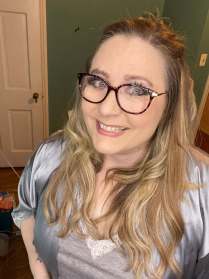Choosing Your Fiction Genre: The 3 Things You Should Consider First��
Guest Poster: Christina Kaye
A big hello and welcome to Christina Kaye–an editor, author, and coach all rolled into one. She’s here to help us make a big decision: which genre to write in. Read on!
According to Statistica.com, by the end of 2020, the contemporary fiction genres which sold the greatest number of books were romance (over 9-million book sales) and suspense/thrillers (over 10 million book sales).
That���s just in units sold. When a recent study done by BookAdReport.com factored in the cost per each book by genre, something interesting happened. See the chart below.

Interestingly, religious/inspirational books almost tied with romance/erotica and crime novels in total average yearly book sales!
Why am I throwing statistics at you? Because it brings to mind for me an interesting, never-ending struggle many authors face and some even love to debate.
Should we be writing stories about what we know and love? Or should we choose the type of stories we write based on what is popular or ���marketable��� at any given point in time?��It���s an interesting question, and many authors have a strong opinion one way or another. But, especially for new authors, the answer may not come to us so easily.
Unfortunately, I can���t tell anyone which genre or types of stories they should write. It���s a decision each author must make for themselves. But in this post, I���m going to give you some facts, figures, and points to consider, so you can make a well-informed decision that is best for you.
Tip #1 – Determine Your Overall GenreIf you searched the internet for the main types of genres and how many there are, you���ll get answers that vary stupendously. In fact, I just ran a quick search myself, and here are just a few of the answers Google gave me on page one alone as to how many genres exist in fiction:

No wonder new writers feel confused and intimidated over this!
Most people agree, however, that the following represent the most common and most popular genres of fiction, and most fiction stories can fit into at least one:
Crime (mystery, thriller, suspense)RomanceFantasyScience FictionWomen���s FictionParanormalLiteraryHorrorDystopianAdventureHistoricalLGBTQABut figuring out which main genre your story will fall into is just the first step. Considering there are BILLIONS of books that exist in the world (and anywhere from 7 to 144 genres to divide them into), that still lands you in a really large pool of ���similar��� books. And it���s important to be as specific as possible when describing your book.
The reason? It���s two-fold.
Knowing your genre inside and out, as well as the expectations readers/fans of that genre hold will help you meet those expectations and craft a story your readers will rush to purchase.Being familiar with your genre and the audience of fans who adore that genre will help you create a more targeted (and effective) marketing campaign because you���ll be keeping your target audience in mind. Tip #2 – Decide Which Subgenre Fits BestSubgenres are the subcategories of each fiction genre that essentially help you ���niche down��� your book into a more specific grouping.
The possibilities are endless, especially when you consider that some really well executed books can slip between genres.
The more familiar YOU are with your story���s genre and its reader expectations, the easier it will be for you to craft the perfect story for them and find them when it comes time to market you book!
Here���s a graphic that shows just some of the subgenres that fall under the three most popular genres: crime, romance, and fantasy.
 Tip #3 ��� Decide Which Genre You Want to Write
Tip #3 ��� Decide Which Genre You Want to WriteNo one can decide this for you, but my best advice is to stop trying to DECIDE which genre you want to write. Instead, clear your mind, and just think about the types of stories you enjoy the most. When you watch TV, listen to podcasts, or read books, which genres do you tend to gravitate toward the most?
For example, when I first decided to write novels and aim for a career as an author, I made ALL the most common mistakes many new authors make. I dove right in and started writing, rather than taking the time to learn everything I could about the craft of writing, publishing, and book marketing.
But once I realized that doing the same thing over and over again but expecting different results was the absolute definition of insanity, I stopped, rewound, and started again from the very beginning.
And when it came time to finally choose what type of stories I wanted to write, I did exactly what I just told you to do. I thought about it and realized that, although I enjoy a little bit out of each genre, crime stories really were my jam.
Once I made the decision to write what I knew and enjoyed most, things finally started happening for me. And I truly believe that, had I not stopped, slowed my roll, then moved forward more intentionally and more purposefully, I would not have been able to cross off so many things from my ���author bucket list.���

So, if you���re not already certain of your genre and what type of stories you want to write, stop and think about it first, then, when you���re ready, choose the type of stories that speak to you, feel right to you, and that you know will come easier and more naturally.
Whatever you do, do not choose your genre solely based on what is ���trending��� at that time. At the end of the day, if you aren���t in love with your story, your readers won’t be either.
I have something that will help you with all the aspects of planning and preparing for writing your next novel.

To help you take those first, intentional steps toward writing your best possible book, check out my latest project, available on our website now. The Book Boss Author Planner (digital version) is a comprehensive writing tool I created to walk authors through each and every step you must take to be successful, from idea brainstorming all the way through your book launch.
It comes with all the standard pages you���d expect in a planner and so much more. I���ve packed the 210-page planner full of writing tutorials, worksheets, templates, trackers, and even a list of the best resources available to help you along your writing journey. Visit this link for more information.
Do you ever struggle when it comes to choosing a genre? Let me know in the comments!
Christina Kaye is an author coach, book editor, and public speaker, as well as the Founder and CEO of Write Your Best Book. She mentors, supports, motivates, and encourages authors to write their best book possible. Christina Kaye is also an award-winning, bestselling suspense novelist in her own right.
For daily writing inspiration, tips, and advice, follow her on Tik Tok, Instagram, Facebook, Pinterest, and LinkedIn: @writeyourbestbook
The post Choosing Your Fiction Genre: The 3 Things You Should Consider First�� appeared first on WRITERS HELPING WRITERS��.
Writers Helping Writers
- Angela Ackerman's profile
- 1016 followers



